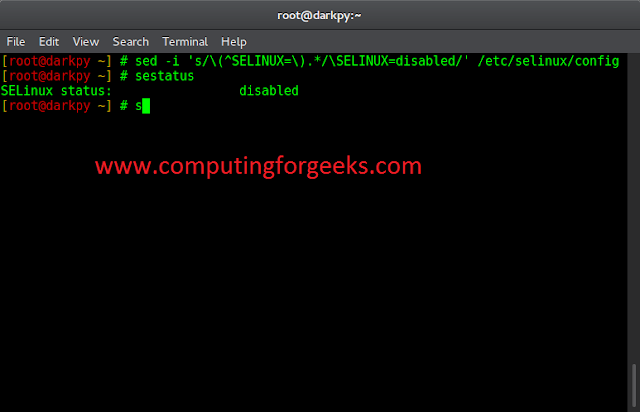Simple Moving Average is the average obtained from the data for some t period of time . In normal mean, its value get changed with the changing data but in this type of mean it also changes with the time interval. We get the mean for some period t and then we remove some previous data. Again we get new mean and this process continues. This is why it is moving average. This has a great application in the financial market. OR this can be simply visualized as follows.
Given an arr[] of size N, containing only positive integers and an integer K. The task is to compute the simple moving average of previous K elements.
Examples:
Input: { 1, 3, 5, 6, 8 }, K = 3
Output: 0.33 1.33 3.00 4.67 6.33
Explanation: New number added is 1.0, SMA = 0.33
New number added is 3.0, SMA = 1.33
New number added is 5.0, SMA = 3.0
New number added is 6.0, SMA = 4.67
New number added is 8.0, SMA = 6.33Input: Array[]= {2, 5, 7, 3, 11, 9, 13, 12}, K = 2
Output: 1.0 3.5 6 5 7 10 11 12.5
Naive Approach: This uses two nested loops. Outer loop traverses the array from left to right. Inner loop computes the average of K previous elements including itself for each index. Finally, the moving average values are printed. The outer loop starts traversal from index K itself. Instead of storing the result, we can directly display the output to avoid using extra spaces.
Time complexity: O(N*K)
Space complexity: O(1)
Efficient Approach: The efficient approach is discussed in the Set-1 of this problem.
Space Optimized approach: This uses sliding window for better time efficiency and space optimization. A window of size K starts from index K and the moving average is printed for each index thereafter.
Below is the implementation of the above approach.
C++
// C++ code to find the simple moving average#include <bits/stdc++.h>#include <iomanip>using namespace std;// Function to compute moving average// of previous K elementsvoid ComputeMovingAverage(int arr[], int N, int K){ int i; float sum = 0; // Initial sum of K elements. for (i = 0; i < K; i++) { sum += arr[i]; cout << setprecision(2) << std::fixed; cout << sum / K << " "; } // Compute MA from index K float avg; for (i = K; i < N; i++) { sum -= arr[i - K]; sum += arr[i]; avg = sum / K; cout << setprecision(2) << std::fixed; cout << avg << " "; }}// Driver codeint main(){ int arr[] = { 1, 3, 5, 6, 8 }; int N = sizeof(arr) / sizeof(arr[0]); int K = 3; ComputeMovingAverage(arr, N, K); return 0;} |
Java
// Java code to find the simple moving averageimport java.util.*;class GFG{ // Function to compute moving average // of previous K elements static void ComputeMovingAverage(int arr[], int N, int K) { int i; float sum = 0; // Initial sum of K elements. for (i = 0; i < K; i++) { sum += arr[i]; System.out.printf("%.2f ",sum / K); } // Compute MA from index K for (i = K; i < N; i++) { sum -= arr[i - K]; sum += arr[i]; System.out.printf("%.2f ",sum / K); } } // Driver code public static void main(String[] args) { int arr[] = { 1, 3, 5, 6, 8 }; int N = arr.length; int K = 3; ComputeMovingAverage(arr, N, K); }}// This code is contributed by Rajput-Ji |
Python3
# Python code for the above approach# Function to compute moving average# of previous K elementsdef ComputeMovingAverage(arr, N, K): i = None sum = 0 # Initial sum of K elements. for i in range(K): sum += arr[i] print("%.2f"%(sum / K), end= " ") # Compute MA from index K for i in range(K, N): sum -= arr[i - K] sum += arr[i] avg = sum / K print("%.2f"%(avg), end =" ")# Driver codearr = [1, 3, 5, 6, 8]N = len(arr)K = 3ComputeMovingAverage(arr, N, K)# This code is contributed by Saurabh Jaiswal |
C#
// C# code to find the simple moving averageusing System;class GFG { // Function to compute moving average // of previous K elements static void ComputeMovingAverage(int[] arr, int N, int K) { int i; float sum = 0; // Initial sum of K elements. for (i = 0; i < K; i++) { sum += arr[i]; Console.Write(Math.Round((sum / K),2) + " "); } // Compute MA from index K for (i = K; i < N; i++) { sum -= arr[i - K]; sum += arr[i]; Console.Write(Math.Round(sum / K, 2) + " "); } } // Driver code public static void Main(string[] args) { int[] arr = { 1, 3, 5, 6, 8 }; int N = arr.Length; int K = 3; ComputeMovingAverage(arr, N, K); }}// This code is contributed by ukasp. |
Javascript
<script> // JavaScript code for the above approach // Function to compute moving average // of previous K elements function ComputeMovingAverage(arr, N, K) { let i; let sum = 0; // Initial sum of K elements. for (i = 0; i < K; i++) { sum += arr[i]; document.write((sum / K).toFixed(2) + " "); } // Compute MA from index K for (i = K; i < N; i++) { sum -= arr[i - K]; sum += arr[i]; avg = sum / K; document.write((avg).toFixed(2) + " "); } } // Driver code let arr = [1, 3, 5, 6, 8]; let N = arr.length; let K = 3; ComputeMovingAverage(arr, N, K); // This code is contributed by Potta Lokesh </script> |
0.33 1.33 3.00 4.67 6.33
Time complexity: O(N)
Space complexity: O(1)
Ready to dive in? Explore our Free Demo Content and join our DSA course, trusted by over 100,000 neveropen!




